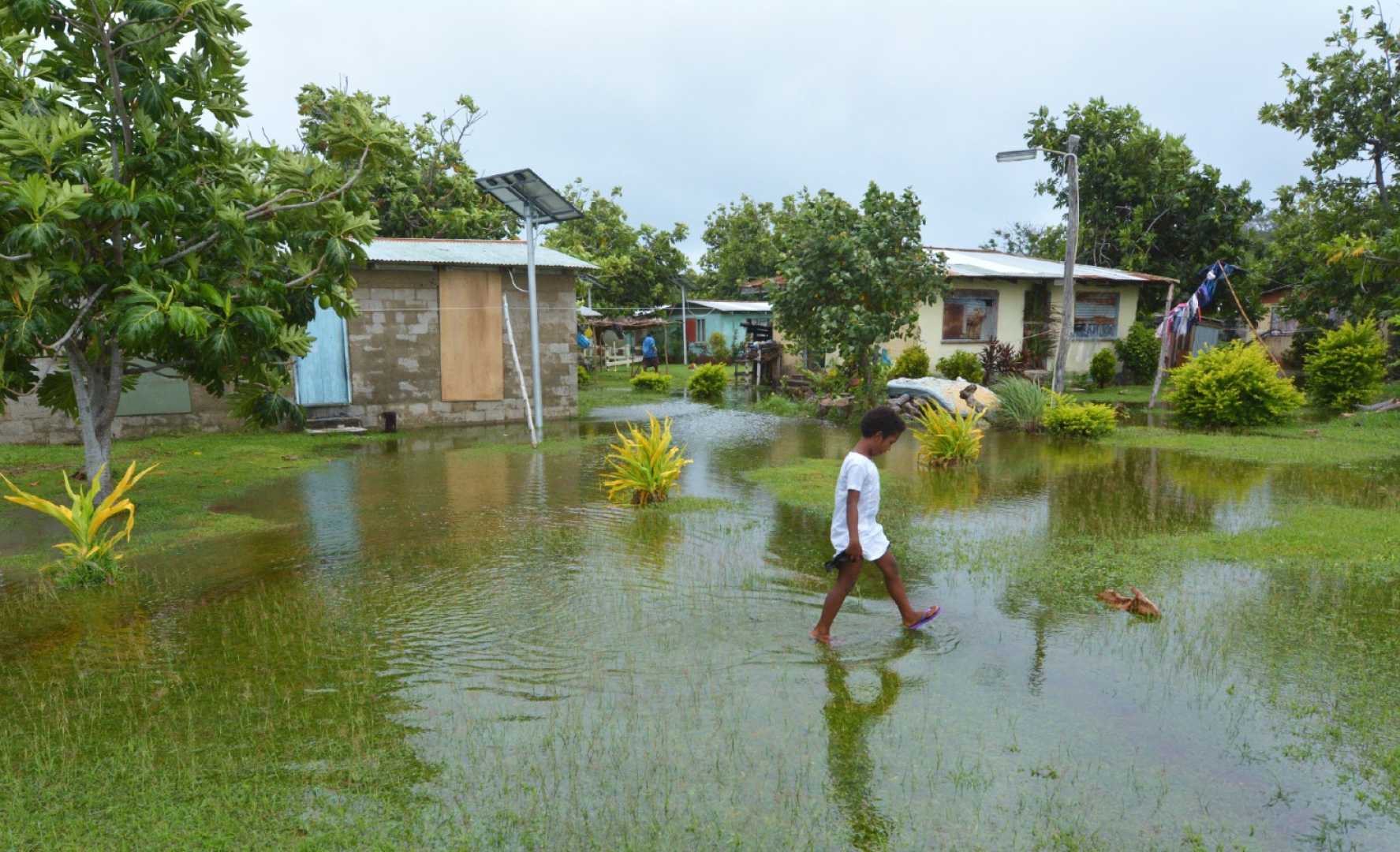News
Fiji’s Nagigi Community Adapts to Climate Change Challenges

NAGIGI, FIJI — In the village of Nagigi, the ocean is not just a resource, it is a part of the community’s identity. Recently, however, villagers have witnessed alarming changes in their marine environment. Rising tides are encroaching on land, fish are becoming increasingly difficult to catch, and once-vibrant beaches and coconut trees have been washed away.
This small village, like many others across the Pacific Islands region, is facing severe pressure from climate change. Traditional fishing methods, which once guaranteed a steady supply of fish, are now unreliable, while extreme weather events and coastal erosion threaten both homes and livelihoods.
One villager expressed a common concern, noting, “We can’t find fish easily, not compared to previous times… some fish species we used to see before are no longer around.” Such narratives are often framed within the context of loss, portraying Pacific Islanders solely as victims of climate change.
However, Nagigi’s story is not just about vulnerability; it highlights the proactive measures that community members are taking to adapt. In response to dwindling fish populations and a need for alternative income sources, women leaders in the village launched an aquaculture project and began initiatives to replant mangroves, aiming to slow the sea’s advance.
The adaptation strategies being implemented are uneven, with some residents unable to relocate from their homes as climate change intensifies. Despite these challenges, Nagigi illustrates the power of collective community action. The village and the nearby Bia-I-Cake settlement rely heavily on fishing and marine resources for their food security and livelihoods.
Community discussions held in 2021 and 2023 revealed that residents have observed unwelcome changes. One woman recounted, “Sometimes the sea is coming further onto the land, so there’s a lot of sea intrusion into the plantations, flooding even on land where it never used to be.” In 2016, Tropical Cyclone Winston devastated many homes, prompting some to move inland to land owned by their clan.
While some residents found relocation successful, not all had the same access or willingness to move. One local stated, “Leave us here. I think if I don’t smell or hear the ocean for one day, I would be devastated.” Yet, the leadership of women has been particularly striking in this community, especially in the small Bia-I-Cake settlement.
Through the aquaculture project, women have cultivated fish ponds and learned to rear and sell fish, even utilizing live streaming for sales. This project, which received support from the United Nations Development Programme, aims to address food insecurity while creating new job opportunities.
Recent efforts have included mangrove replanting initiatives and constructing greenhouses to support the farming of new crops. As expressed by one woman involved, these endeavors affirm that women “have the capacity to build a sustainable, secure, and thriving community.”
In response to environmental pressures, villagers have agreed to temporarily close some fishing grounds, allowing fish populations to recover. Moreover, they are considering the declaration of a locally-managed marine area, also known as a tabu, as a method to combat climate impacts and overfishing.
While communities like Nagigi have historically protected their local ecosystems, the current challenges require renewed efforts to adapt and formalize these practices. Although progress has been made, adaptation remains uneven, with many not having sufficient resources for relocation or rebuilding.
Ultimately, Nagigi teaches us about the significance of local adaptation and the strength of communities to respond to risks, recover from climate impacts, and discover new pathways for sustainability. It is crucial to recognize and support local initiatives such as those in Nagigi, as they offer valuable lessons for other communities facing similar climate pressures.
The authors of this piece acknowledge the generosity of the Nagigi and Bia-I-Cake communities and especially the Bia-I-Cake Women’s Cooperative for sharing insights and experiences.












